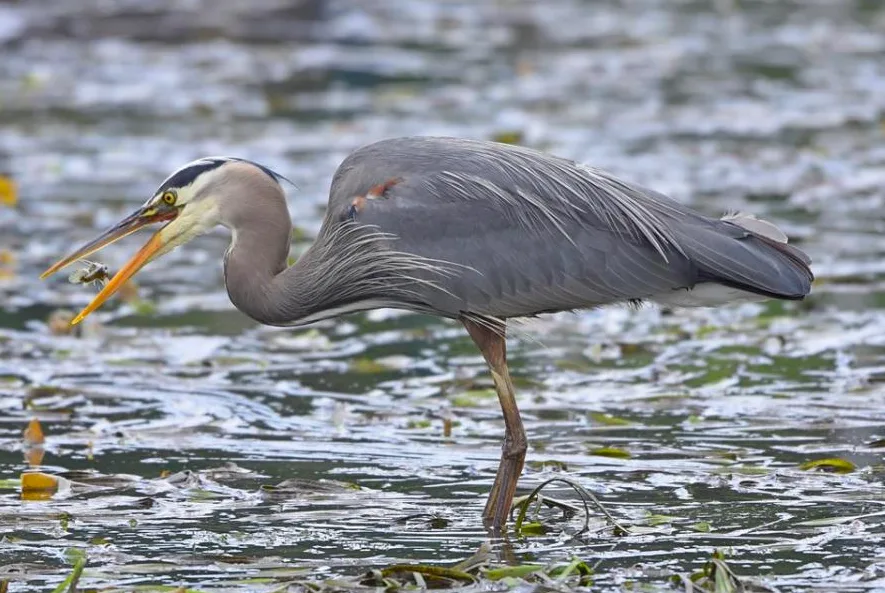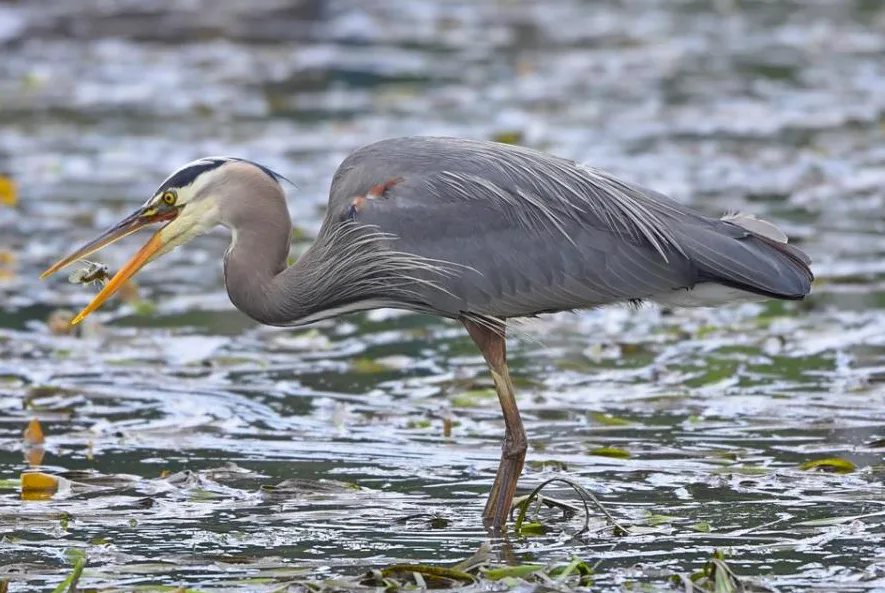
Scientists identify major predator of juvenile B.C. salmon
Pacific great blue herons may make off with three to six per cent of juvenile salmon each year, but the researchers say that's not necessarily a bad thing.
Scientists in B.C. have uncovered the culprit behind the loss of thousands of young salmon every year: Pacific great blue herons, a relatively understudied bird species found in the Salish Sea region.
A new study from the University of British Columbia estimates the herons could be making off with at least three per cent of juvenile salmon on their way to the ocean, and possibly as much as six per cent in years where river water levels are low.
In a release from the university, lead author and PhD student Zachary Sherker said the researchers had looked to other potential culprits such as racoons, otters, kingfishers and others, but didn't find any useful evidence until they received advice from an Indigenous partner.
“I was getting a ride to seal haul-outs with a Cowichan Tribes biologist named Tim Kulchyski and airing my woes to him,” Sherker says. “He looked over at a bunch of herons foraging at the outflow of the river and said, ‘Did you ever look into herons?’ That day I went over and found about 100 tags.”

Blue herons at Cowichan Bay. Photo: Robert Stenseth/UBC
Subsequent searches of Heron rookeries turned up one per cent of the 100,000 tags placed inside juvenile salmon for the purpose of the study in the Cowichan, Big Qualicum and Capilano rivers.
The findings, which were published in the Canadian Journal of Zoology, suggested heron predation be taken into account when considering future salmon recovery plans, but Sherker said that predation isn't necessarily a bad thing.
“Herons may be taking out fish that were destined to die somewhere else along the way, but were going to live long enough to compete with other fish for potentially limited resources in the early marine environment," he said. "This predation could benefit salmon stocks by weeding out the weak and allowing for less competition and higher growth among other fish in these critical juvenile life stages."
